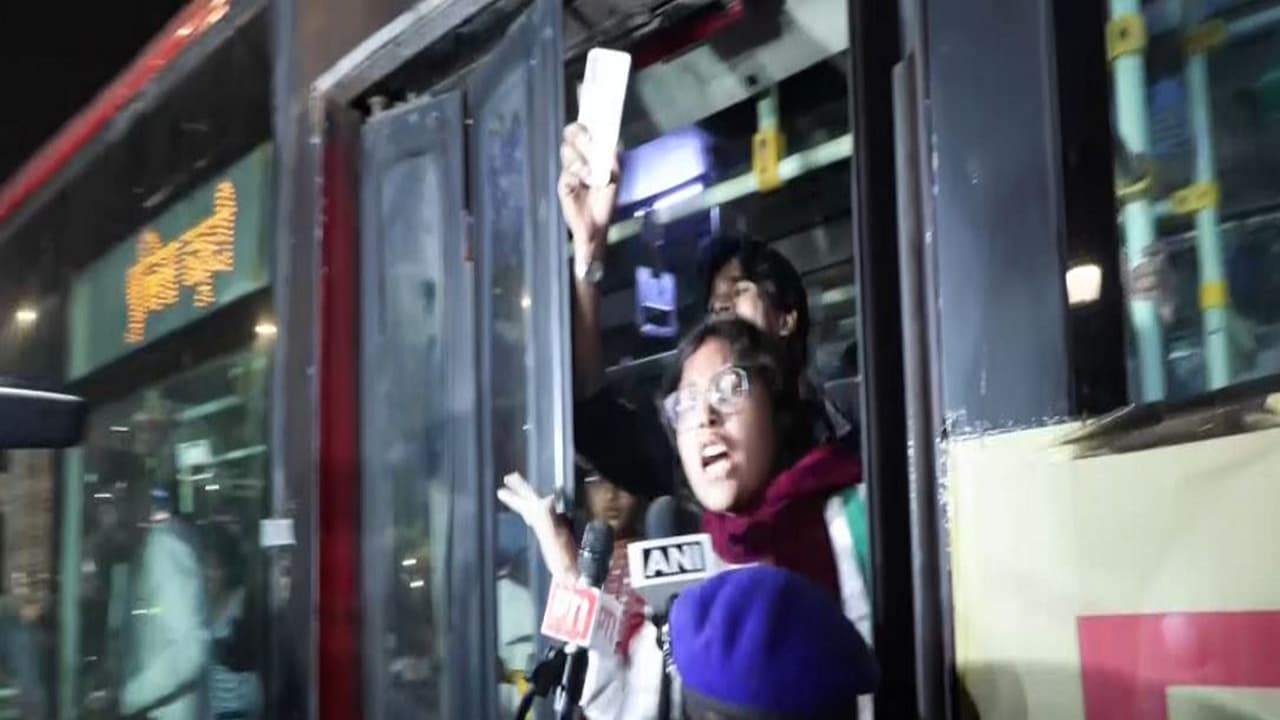Delhi Police detained protesters at India Gate demanding action on severe air pollution. AAP accused the BJP of manipulating AQI data and evading responsibility, while citizens cited a violation of their constitutional ‘right to life’.
Delhi Police detained people protesting at India Gate on Sunday, demanding that the government formulate policies to curb air pollution in the National Capital region. New Delhi district DCP Devesh Kumar Mahla said, “India Gate is not a protest site. The designated protest site in New Delhi is Jantar Mantar, as per the Supreme Court’s directions. That is why we have advised everyone to follow the guidelines. At India Gate, people come along with their families to enjoy, and it is a national monument. There are VIP routes here; we are deployed here regularly.”
AAP Slams BJP Over Pollution Crisis
Aam Aadmi Party (AAP) spokesperson Priyanka Kakkar on Monday alleged that the ruling BJP government got water sprinkled on AQI monitors to lower the readings. Kakkar demanded that the government formulate policies to curb air pollution in the Delhi-NCR region as she joined the protests at India Gate. Speaking to ANI, Priyanka Kakkar said, “The BJP got water to be sprinkled on AQI monitors to lower the readings. The BJP is manipulating the data. This lowers the BJP’s integrity and credibility. Even the BJP people should be here with us, but they are sitting at home with their air purifiers. The BJP needs to understand that the air and water are not a matter of politics.”
She further stated that when the AAP government was in power in the national capital, they worked 365 days on all aspects. “BJP is running away from accountability. It is living in denial and playing with our health. If CM Rekha Gupta had been serious about pollution, she would have addressed citizens on the steps being taken to curb pollution,” she added.
Citizens Demand ‘Right to Clean Air’
A resident of Delhi said that this is not a political issue. A resident of Delhi, Neha, said, “We have only one issue, and that’s clean air. This problem has been going on for years, but no action is being taken. It’s a violation of our constitutional rights. We’ve been struggling with this for 10 years. No one cares about the health and rights of citizens. This is violation of Article 21 our right to life. We don’t have clean air to breathe. I don’t understand what we’re waiting for, and why we’re not taking action. Peaceful protests are going on here, but people are being dragged and detained into buses. This is also violation of Article 19. This isn’t a political matters. It’s about clean air.”
Delhi’s Air Quality Plunges to ‘Severe’
The air quality in the national capital plunged into the ‘severe’ category on Sunday, with the overall Air Quality Index (AQI) recorded at 391 at 7 am, according to data from the Central Pollution Control Board (CPCB). Several parts of the city registered alarming pollution levels with AQI readings crossing the 400-mark.
As per CPCB data, Anand Vihar recorded an AQI of 412, Alipur reported 415, and Bawana registered the highest level at 436. Chandni Chowk recorded an AQI of 409, while RK Puram and Patparganj logged 422 and 425, respectively. Sonia Vihar also recorded a ‘severe’ AQI of 415, indicating hazardous air conditions across the city.
Anti-Pollution Measures in Effect
Since Diwali, the Air Quality Index (AQI) in Delhi and the National Capital Region (NCR) has been reeling under the ‘poor’ and ‘very poor’ categories in several areas, even as Stage 2 of the Graded Response Action Plan (GRAP) remains in effect. The New Delhi Municipal Council (NDMC) has already announced the doubling of parking fees across the national capital after the Graded Response Action Plan (GRAP) Stage II was invoked due to deteriorating air quality.
According to CPCB, an AQI between 0 and 50 is considered ‘good’, 51-100 ‘satisfactory’, 101-200 ‘moderate’, 201-300 ‘poor’, 301-400 ‘very poor’, and 401-500 ‘severe’.
(Except for the headline, this story has not been edited by Asianet Newsable English staff and is published from a syndicated feed.)
